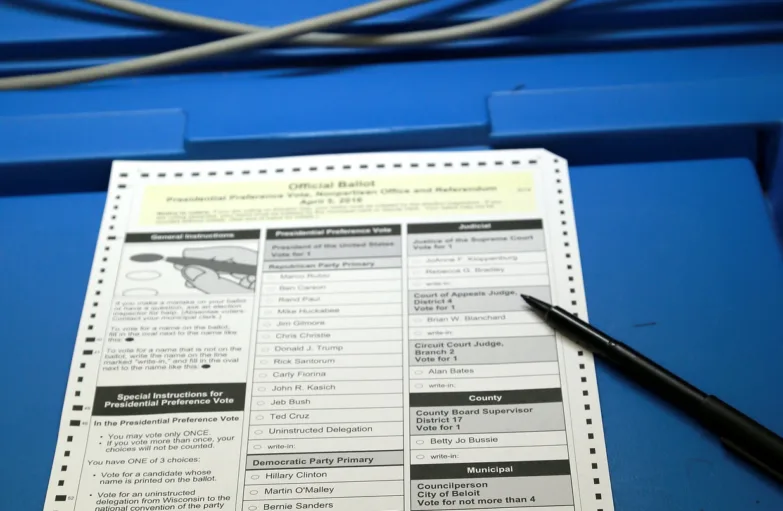Voices
Our Voting Rights Have Been Restored. Here’s How We Can Use Our Power
Changes in state law mean that many more people with felony convictions will be voting in 2024 than in previous elections.

As we write, the presidential contest between Vice President Kamala Harris and former President Donald Trump is too close to call and likely will remain so beyond the last ballots cast on Tuesday. Reflecting on 2020, less than 0.03 percent of all votes–43,000 combined across Wisconsin, Arizona, and Georgia–gave President Biden the win over Donald Trump. Amazingly, the margins this year may be even smaller.
In such a tight election, formerly incarcerated people have the power to help decide our next president. Despite the persistence of laws disenfranchising persons with convictions, states have been moving in the right direction. Since 2019, New Mexico, New Jersey, New York, California, Washington, and Colorado have all passed laws restoring the voting rights of people on probation and parole. Twenty-three states, including battlegrounds like Michigan, Pennsylvania, and Nevada, allow people to vote after leaving prison, even if they are on probation or parole. Michigan recently enacted a law that automatically registers people leaving prison to vote. Throughout the country, in red and blue states, the historical shame of felony disenfranchisement is starting to give way to a new consensus that grants full citizenship to returning citizens.
And yet, the GOP continues working to lock people with felony convictions out of voting booths. In Virginia, Republican Governor Glenn Youngkin, in a departure from his predecessors, reversed the process of automatic voting rights restoration and has basically brought the initiative to a standstill. In North Carolina, the Republican-controlled Supreme Court reversed a lower court decision that restored voting rights to about 56,000 citizens. And in Nebraska, Republican Secretary of State Bob Evnen refused to implement a new state law requiring him to register people with completed criminal convictions to vote without the previous two-year wait. Just days ago, Evnen and state Republican Attorney General Mike Hilgers lost a challenge in the state Supreme Court, which ordered them to implement the law immediately.

But these challenges shouldn’t deter those with felony convictions (we are two of them) from exercising their right to vote. Felony disenfranchisement should be understood as a mechanism of voter suppression and systemic racism. Currently, 4 million voting-age Americans are felony disenfranchised across 48 states. One in 22 Black Americans of voting age is disenfranchised, a rate more than triple that of non-Black citizens. Nearly half a million voting-age Hispanics are estimated to be disenfranchised.
Those with felony convictions—meted out by a systematically racist criminal legal apparatus— know that calls for a return to “tough on crime” policies are racist dog whistles—ones no less racist in purpose and effect than Trump’s bizarre, fact-free fixation with dog-eating Haitians.
Donald Trump’s recent rally in Madison Square Garden—which featured a speaker mocking Puerto Rico as a “floating island of garbage” who also indulged in vile stereotypes about Jews, Blacks, and Latinos—simply highlights his increasingly naked appeals to racism. This comes on top of Trump’s calls to militarize local police, expand the death penalty for a range of crimes, and spend billions of dollars to deport millions of people from American communities. Combined with Trump’s overt bigotry, these “day one” policies should be especially offensive to those who have personal experience with the criminal legal system’s brutalizing, dehumanizing reach.
It is incredibly important that people with criminal convictions exercise their right to vote wherever possible—and that when they do, they reject the overt racism of Donald Trump and his apologists. In voting, we will make it clear that we too have a voice in this nation’s future—and that we repudiate the disgusting politics that Donald Trump and the GOP have built on fear, racism, voter suppression, and reprisal.
